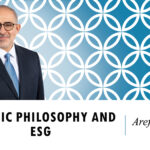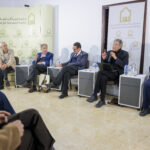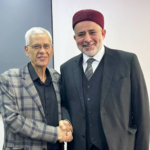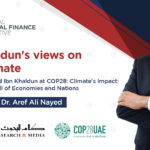Kalam has always been a foundational Islamic science and it was only in the twentieth century that the discipline became discredited in the wake of puritanical propaganda. For centuries, however, it served to buttress the faith from the challenges of its times; its role is ever more urgent today when there is desperate need for intellectual sophistication and coherency in belief. The development of the Kalam tradition has been seriously hampered in the face of the systemic transformations that took place in the post-colonial period in the Muslim world, which saw the dismantling of much of its traditional learning centres, and the subsequent rise of political and puritanical forms of Islam, at odds with the orthodox framework of the Islamic tradition, leaving no room for theological and spiritual refinement. The modern period, and the subsequent monopoly of discourse at the hands of Islamists and puritans, effectively put an end the notion of a civilisation in Islam. Without an internal intellectual coherence, modern developments in Muslim thought and society are but a pastiche of ideas unable to hold together in a meaningful manner.
Today, the developments in the various fields of human and natural sciences and in the arts call for an urgent and serious engagement by Muslims. The only way this will be possible is through a revival of the Kalam tradition, though broadened to incorporate a much wider theological enterprise than previously that can once again make sense of the world we live in and which also bridges the gap between being and existence, thought and action, between learning centres and their communities. Issues related to evolution, ethics, pluralism, inter-faith, environment, quantum physics, etc, cannot be dealt with on purely legal terms, but must be engaged through a systematic theological, rational, spiritual, ethical and legal vantage point. If the idea of an Islamic civilization is to be rekindled, then all of its fundamental sciences, from theology to art, must also be revived. Without them we will simply not have the basic tools to probe the burning questions of the age. The theological enterprise is therefore an urgent one.
Through a variety of research programme, projects and educational initiatives, KRM seeks to play a role in the revival and rearticulation of this most fundamental of Islamic intellectual disciplines. KRM has published seminal monographs on this question and also initiated two important efforts in this field: The Ghazali Workshop and the Islamic Analytic Theology Initiative. Our new website will keep our readers updated on the development of both of these projects, which bring together a tremendous network of scholars from around the world.






